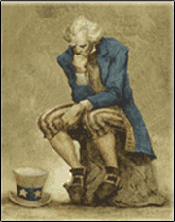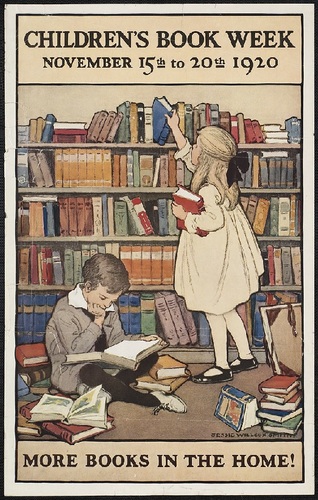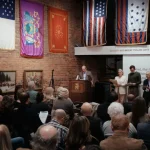
–>
April 8, 2023
Public school libraries are apparently under siege by book banners. A steady stream of alarmist headlines tell of angry parents demanding libraries remove books that will corrupt their children. As Pen America, the premier defender of free expression, put it, “Over the 2021–22 school year, what started as modest school-level activity to challenge and remove books in schools grew into a full-fledged social and political movement, powered by local, state, and national groups. Most of the books targeted by these groups for removal feature LGBTQ+ characters or characters of color, and/or cover race and racism in American history, LGBTQ+ identities, or sex education.” All told, according to PEN America, “From July 2021 to June 2022, PEN America’s Index of School Book Bans lists 2,532 instances of individual books being banned, affecting 1,648 unique book titles.”
‘); googletag.cmd.push(function () { googletag.display(‘div-gpt-ad-1609268089992-0’); }); }
The purported assault on freedom of expression overwhelmingly targets hot-button, once unspeakable-in-public topics. Gone are the conflicts over literary classics such as Lady Chatterley’s Lover that might expose inquisitive teenagers to the taboo topics of adulty and unconventional sex. The books that inspire parental ire feature stories about explicitly gay relationships, gender dysphoria, race and racism, political activism, abortion, and teen pregnancies.
The censorship battle is typically portrayed as Left vs. Right where the Right opposes freedom of expression, while the Left defends “the right to know.” This is a great political victory for the Left. After all, who wants to be anti-First Amendment and deny youngsters the opportunity to make informed choices? As portrayed by the Left, the battle quickly becomes a moral one, the forces of darkness versus defenders of truth.
The Left mischaracterizes this battle. Is not a clash between good versus evil let alone a war between First Amendment champions against narrow-minded religious fanatics pushing ignorance. A better understanding is that today’s library censorship battles just reflect how contemporary publishers are flooding the market in pursuit of an ideological agenda.
‘); googletag.cmd.push(function () { googletag.display(‘div-gpt-ad-1609270365559-0’); }); }
Book censorship cuts across the political spectrum, and today’s Left periodically champions library censorship, albeit with different targets. A story reported by CNN — hardly a conservative outlet — depicts how a library has banished such classic children’s books as Little House on the Prairie, Peter Pan and several Dr. Seuss picture books for their racist depictions of indigenous, black and Asian characters. Censorship can be indirect, for example, relocating offending books to the adult collection or burying them an “historical artifact” beyond the reach of young patrons.
Another strategy favored by the Left is to use an “offensive” book to propagate a more politically correct message. For example, the Nashville Public Library instigated a program in a called “Tackling Racism in Children’s Books..” Librarians read supposedly racist passages, but only to illustrate the book’s hurtful content. Librarians then solicited children’s reactions to this alleged hatefulness. One librarian used a picture of a Native American girl with pigtails in “Little House on the Prairie as an example of cruelty and the genesis of white privilege. In the Brooklyn, N.Y. public library a Harry Potter book was judged offensive, so parents and children are directed to a more LGBTQ-friendly magic material, like “Not Your Sidekick.”
 Left-wing censorship can also entail innocuously rewriting the classics to avoid offending politically protected groups. Particularly notable is how “sensitivity experts” once scrubbed the children’s books of Roald Dahl from anything that might conceivably be judged offensive. The word “fat” was banished along with “ugly.” “Small man” became “small people.” The story of the Chocolate Factory was reworked to be gender neutral, and care was taken so as not to offend the transgendered. But, fortunately for Dahl’s fans, public outrage forced the publisher to reverse course and drop these “more sensitive” updates. Critically, none of this left-wing censorship appears on the radar of those like PEN who monitor book banning.
Left-wing censorship can also entail innocuously rewriting the classics to avoid offending politically protected groups. Particularly notable is how “sensitivity experts” once scrubbed the children’s books of Roald Dahl from anything that might conceivably be judged offensive. The word “fat” was banished along with “ugly.” “Small man” became “small people.” The story of the Chocolate Factory was reworked to be gender neutral, and care was taken so as not to offend the transgendered. But, fortunately for Dahl’s fans, public outrage forced the publisher to reverse course and drop these “more sensitive” updates. Critically, none of this left-wing censorship appears on the radar of those like PEN who monitor book banning.
The current debate over library censoring further ignores the obstacles faced by those with opposing views getting published. There is almost no counter-narrative regarding gay rights and the like, so conservative parents predictably feel outraged — they are being overwhelmed and lack recourse to balance the outpouring of books from the Left. Yes, there are a tiny handful of conservative publishers specializing in children’s books, for example, Brave Publishing. This is a miniscule, easily overlooked segment of the market. If the Right dominated publishing and libraries, this battle would be far different.
Even a cursory review of what is available demonstrates this ideologically lopsided menu. Here is just a sampling of websites offering sex-themed children’s books that many conservative parents will likely find objectionable:
Though there may be some overlap, there are additional sites, and this market is booming. And make no mistake, these books are explicit about “non-conforming” sex and sexual relationships. If a visiting Martian examined today’s children’s literature, he could only conclude that non-traditional sex is an important topic comparable to the three Rs. Conceivably, this “sex training” is being given more attention than art and music. Or, if those subjects are taught, it may be in the context of current sexual discussions — was Franz Schubert a closet Queer?
‘); googletag.cmd.push(function () { googletag.display(‘div-gpt-ad-1609268078422-0’); }); } if (publir_show_ads) { document.write(“
Now imagine an alternative universe where proponents of genetic determinism have captured the publishing industry and library schools. Like today’s Left, they know that indoctrination must being early so they hire writers to churn out a flood of grade-level appropriate books advancing their ideology. Hypothetical titles aimed at third graders might include Why Are the Black Kids Always in Trouble? and Why Dick is Better at Math than Jane. These books would stress evolutionary biology as the key to understanding human behavior, for example, black students are born with lower IQs and weaker impulse control, so they “naturally” get into more trouble than Asian classmates. Further assume that other biologically oriented published jumped on the bandwagon and flood the K-12 market whose books explain everything from crime to teenage pregnancy with genetics.
Millions of liberal parents would be outraged and demand that libraries stop stocking this “pseudo-science” and instead celebrate multiculturalism and diversity. Lawsuits would proliferate and disgruntled parents might withdraw junior from public school and enroll them elsewhere to escape the “hate.” Faced with these outcries, publishers of evolutionary themed books might be shut down.
Since publishers of children’s books are free to publish whatever the market will buy, and schools enjoy wide latitude in assigned readings, no simple solution exists to this censorship quandary. Perhaps other states might emulate Florida where the entire subject of sex is off-limits to young children. This solution is especially appealing since many young Americans currently struggle with the basics. There are opportunity costs in politicizing the curriculum, regardless of the ideological message, and it may be time to pause the censorship batters.
Image: Boston Public Library
<!– if(page_width_onload <= 479) { document.write("
“); googletag.cmd.push(function() { googletag.display(‘div-gpt-ad-1345489840937-4’); }); } –> If you experience technical problems, please write to [email protected]
FOLLOW US ON
<!–
–>
<!– _qoptions={ qacct:”p-9bKF-NgTuSFM6″ }; ![]() –> <!—-> <!– var addthis_share = { email_template: “new_template” } –>
–> <!—-> <!– var addthis_share = { email_template: “new_template” } –>





